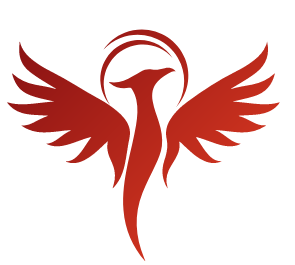Surprisingly, I found myself drawn to the philosophy of classical education well before my passion for the Great Books took root. It all happened by accident, myself being slowly pulled into this particular understanding of teaching and learning. In fact, as I was pulled deeper and deeper into learning more about classical education, I found myself pulled away from a total focus on what had always been my first love—arts in education. Even still at the end, I found that I was not pulled completely away from arts in education, but I gained a more encompassing understanding of education that involves not just literacy, but the various forms of expressing that literacy (i.e. writing, speaking and even the arts).
I had been teaching for Montgomery County Public Schools for about 6 years when I was accepted into the music education program at Howard University. At this time, I realized that I wanted to take a break from teaching full time in order to continue studying the arts in education. As this was happening in my life, my parents were starting a journey of their own, for they were in the process of starting a private school. Our journeys intersected when they began looking for a part time music and drama teacher. They agreed to hire me if I agreed to learn about the educational philosophy upon which they decided to base the school.
My study of classical education involved reading The Lost Tools for Learning by Dorothy Sayers (1948) and A Well Trained Mind by Susan Wise and Jesse Wise-Bauer (1999). Reading these books allowed me to see the different cognitive phases that students move through during their years of education. According to the philosophy of classical education, a child’s intellectual development involves a three part process of training the mind (Wise &Wise-Bauer, 1999, p. 43). Classical education believes that the primary role of the teacher is to show the student how to think by guiding them through these phases. When a child is educated in a classical school, they go through each of these stages (grammar, logic and rhetoric) with the end product being children who can think and articulate that knowledge for themselves and others.
Classical education provides a rigid structure for how children should progress through school. The Grammar phase has students focusing on memorization of facts that are foundational to most common knowledge (i.e., parts of speech, parts of the body, naming the states, naming the countries, mulitiplication facts, etc.). Teachers of this phase are teaching grades K through 6, and during this time they are primarily focusing on encouraging memorization of these facts. The Logic phase has students taking those facts that were memorized during the Grammar phase and then coming to understand the “why’s” behind those facts. They also learn how to articulate their comprehension of those facts in their own words. The introduction of argument/debate takes place in this phase as well. Teachers of this phase are working with students in grades 7 to 9. The Rhetoric phase has students take the facts and the comprehension of those facts and then use them to formulate their own theories, philosophies, and world view. Students learn to present theses in which they argue their own personal beliefs and theories.
I studied and practiced this philosophy for over 10 years, but as I became more focused on teaching the Great Books class, I came to a place where I did not feel bound by keeping students within the confines of those phases. I do find these phases helpful to me in understanding and naming how students are learning, thinking, growing and being, but I also realize that students should be allowed to progress through these phases at their own pace. For example, my 5 year old son is already in the rhetoric phase. I can read a Great Books text with him and he is able to discuss it with me as if I am talking to one of my high school students. His learning of addition is actually progressing through comprehension of what addition means, as opposed to just memorizing his addition facts. This is how he learns. He is my “why” baby. A child’s educational journey is a very personal one and should be allowed to take place as the child is learning to learn. I also believe that a child’s progression in education is all about exposure. As I used to have my students read texts like A Mid Summer Night’s Dream, even though it seemed so far away from who they were, my son reads the stories of slavery, even though he is only 5. My students connected to Shakespeare, just as my son has recently become interested in African culture and stories of slavery. Exposing African American students to the Great Books expands them beyond their culture, beyond their life, beyond their personal belief systems, etc. Including African American authors in this type of learning keeps them connected to their heritage, invites their ancestors into the Great Conversation, along with themselves.

Please send me the link to your talk. I am very interested in what you are doing, and commend you. Ann Dailey
LikeLike
Hello! I just posted the video link as a blog post! Thank you for your support!
LikeLike